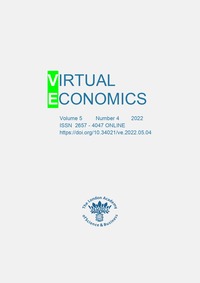Framing a Regional Spatial Development Perspective: The Relation between Health and Regional Performance
Framing a Regional Spatial Development Perspective: The Relation between Health and Regional Performance
Author(s): Natalia Letunovska, Rafis Abazov, Yang ChenSubject(s): Social development, Health and medicine and law, Welfare services, Economic development
Published by: The London Academy of Science and Business
Keywords: a level of health development; regional competitiveness; public health risk; quality of life; regional growth; causality;
Summary/Abstract: The article describes the step-by-step process of testing the hypothesis about the importance of the health factor in the regions’ economic growth, which determines their competitive positions. Calculations of the health development level in 22 regions of Ukraine were carried out, according to which those regions were divided into four clusters. The regions’ integrated index of competitiveness was evaluated. The obtained taxonomic indicator allowed dividing the analysed regions into four groups according to their integral values of competitiveness. At the next stage, there were used several criteria for checking the data by groups for normality of distribution using the Shapiro-Wilk test and the Levin method, which made it possible to confirm the presence of the heteroscedasticity phenomenon of the variances of the compared groups of regions. To confirm a connection between the level of regions’ health development and their competitiveness, a one-factor parametric ANOVA analysis, supported by Tukey's post hoc test, was carried out, which revealed a dependence between almost all groups of the regions compared. The Granger test made it possible to confirm the hypothesis of a unidirectional causal relationship between the health factor and the competitive positions of a region based on the integrated level of competitiveness. The obtained results prove the need for an active work in the direction of strengthening the regional health care system and the maximum involvement of stakeholders of various levels in the strategy issues of improving the territories and supporting the system of medical and social care of the population at the level of cities and regions. The authors emphasize that for implementing an effective regional health policy, it is important to take into account the influence of factors that can restrain health development, as well as those groups of determinants capable of stimulating this development: financial and budgetary mechanisms, involvement of marketing and information tools, taking into account behavioural and institutional factors.
Journal: Virtual Economics
- Issue Year: 5/2022
- Issue No: 4
- Page Range: 87-99
- Page Count: 13
- Language: English

